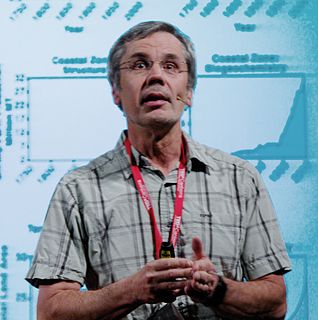A Quote by Dale Jamieson
We need to use economic instruments such as carbon taxes, cap and trade, tax and dividend and whatever else to help incentivize behavior that will move us to a post-carbon, post-animal agriculture world, and make our societies more resilient to the shocks that are already baked into the system. But that doesn't make climate change an "economic issue."
Related Quotes
We now know that climate action does not require economic sacrifice. This is fully in line with the World Bank Group's findings. It is up to all of us to make smart policy choices that will help combat climate change. For example, putting a price on carbon is a necessary step and could drive resources and investments to a cleaner economy.
I'm not shy about stating my opinion on political issues, so I can state my opinion, which is, on this one, Premier Notley's right. Because cap and trade systems have not been shown to work. And if you want to price carbon, then I would listen to the CEO of Suncor, who suggests a clean, transparent carbon tax makes a bunch more sense than a cap and trade system that just creates jobs for traders. I - I kind of agree with that.
I think when it comes to climate change, the single most important thing in the world is for the United States' Congress to pass an effective bill that will put a price in carbon because if it starts costing something to emit carbon, this will provide an incentive, people do act on the basis to some extent of economic incentives to emit fewer greenhouse gases.
For me the two biggest issues are climate change and animal welfare/animal agriculture. And oddly enough animal agriculture is such a contributor to climate change. According to the United Nations, 25% of climate change comes from animal agriculture, so every car, bus, boat, truck, airplane combined has less CO2 and methane emissions than animal agriculture.
Eventually we'll use a CO2 tax offset by a reduction in taxes elsewhere alongside a cap-and-trade plan, but the degree of difficulty associated with a CO2 tax far exceeds that with a cap-and-trade plan. We're seeing it's hard to get a cap-and-trade plan and it's much easier to use as a basis for a global agreement than a CO2 tax.































